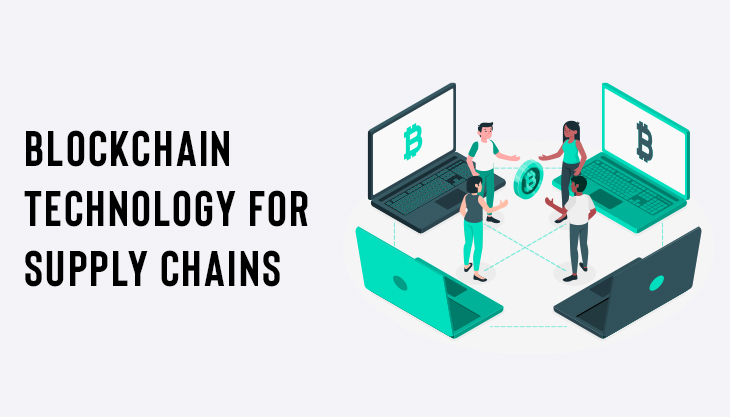One more day, one more innovation to consider. This time it is blockchain, the innovation to help bitcoin exchanges. As indicated by its team promoters, particularly in the monetary area, blockchain innovation can turbocharge the viability and productivity of the overwhelming majority of organizations or even overturn business as far as we might be concerned.
Does blockchain innovation really apply to the inventory network world? Would it be able to take care of your inventory network issues and increment your productivity? These are a portion of the exceptionally functional questions we have by production network leaders. We will give you a clear comprehension of what blockchain innovation is and save you the hour of contemplating, testing, and evaluating its worth to your activities.
Understanding Blockchain Innovation
Blockchain is a web-based innovation valued for its capacity to approve, record, and disperse exchanges in permanent, encoded records. The technology helps trade in bitcoin, an advanced digital currency that works autonomously from a national bank. Generally, blockchain innovation gives the stage to making and dispersing the record, or record, of each bitcoin exchange to thousands, on the off chance that not millions of PCs connected to networks in all regions of the planet.
Since the exchanges & records are encoded, blockchain innovation offers more security than the financial model & its prompt transmission by the web wipes out banks' multi-day clearing process and goes with costs for moving cash starting with one record then onto the next. The expression "blockchain" is from the "blocks" of approved and changeless exchanges and how they connect in sequential requests to shape a chain (display). Subsequently, the expression "blockchain."
Blockchain's worth in the present stock chains
The innovation has energized the IT and production network universes. It has likewise roused many articles and provoked out IT players and blockchain companies to start promising pilot projects, including:
Walmart tried an application that follows pork in China and produce in the US to confirm exchanges and the exactness and productivity of record keeping.
Maersk and IBM are chipping away at cross-party exchanges that utilize blockchain innovation to assist with the development of cycle effectiveness.
BHP is presenting a blockchain arrangement that replaces bookkeeping pages for the following examples inside and remotely from a scope of suppliers.
However, until this point, the creators don't know about any at-scale applications to the store network, bringing up a fundamental issue: Can blockchain technology enhance supply chains?
To evaluate blockchain innovation's worth in question for the production network world, we took a gander at three regions where it could add esteem:
Supplanting slow, manual cycles. Even though supply chains can presently deal with enormous, complex informational indexes, many of their processes, specifically those in the lower supply levels, are slow & depend totally on paper.
Reinforcing detectability. Expanding administrative and purchaser interest for provenance data is now driving change. In addition, further developing recognizability likewise adds esteem by relieving the significant expenses of value issues, like reviews, reputational harm, or the deficiency of income from dark or dim market items. Improving on an intricate stockpile base offers further worth creating open doors (see sidebar, "A mind-boggling production network of obscure gatherings").
Decreasing production network IT exchange costs. Bitcoin pays individuals to approve each square or exchange and requires individuals who propose another square to remember an expense for their proposition. Such an expense would probably be restrictive in supply chains because their scale can falter. For instance, in 90 days, a solitary car producer would ordinarily give roughly 10 billion call-offs just to its level one providers. Likewise, those exchanges would fundamentally raise interest for information capacity, a fundamental part of blockchain's record approach. Moreover, making and keeping up with various duplicates of informational indexes would be illogical in the store network climate, particularly in permissionless blockchains.
Conclusion
For supply chains without trusted members, blockchain innovation can add trust, straightforwardness, & detectability. Nearly by definition, these inventory chains are intricate, multi-layered, include many gatherings, and work in a managed climate that requests a more elevated level of detectability.
Be that as it may, for supply chains with known and believed players, a unified data set approach is by and large above and beyond. It doesn't imply that every one of these inventory chains presently follows a genuine start to finish approach. Truthfully, most of them use siloed information bases that contain data with just restricted recognizability. In this manner, large numbers of these stockpile chains don't require blockchain innovation to address such issues, because they use existing advances more qualified to their exchanges, either alone or with accomplices.
It's too soon to assess the expenses of working blockchain innovation in the store network world and contrast them and different advances. Almost certainly, IT organizations will be good to give this data.
Nonetheless, the offer should be clear. What are the inside conditional efficiencies? What is the potential expense in finished result disappointments, reviews, and cases? Could a purchaser pay something else for an item that offers straightforwardness through its inventory network? These inquiries ought to stand while considering blockchain for use in supply chains.
















Post Comments